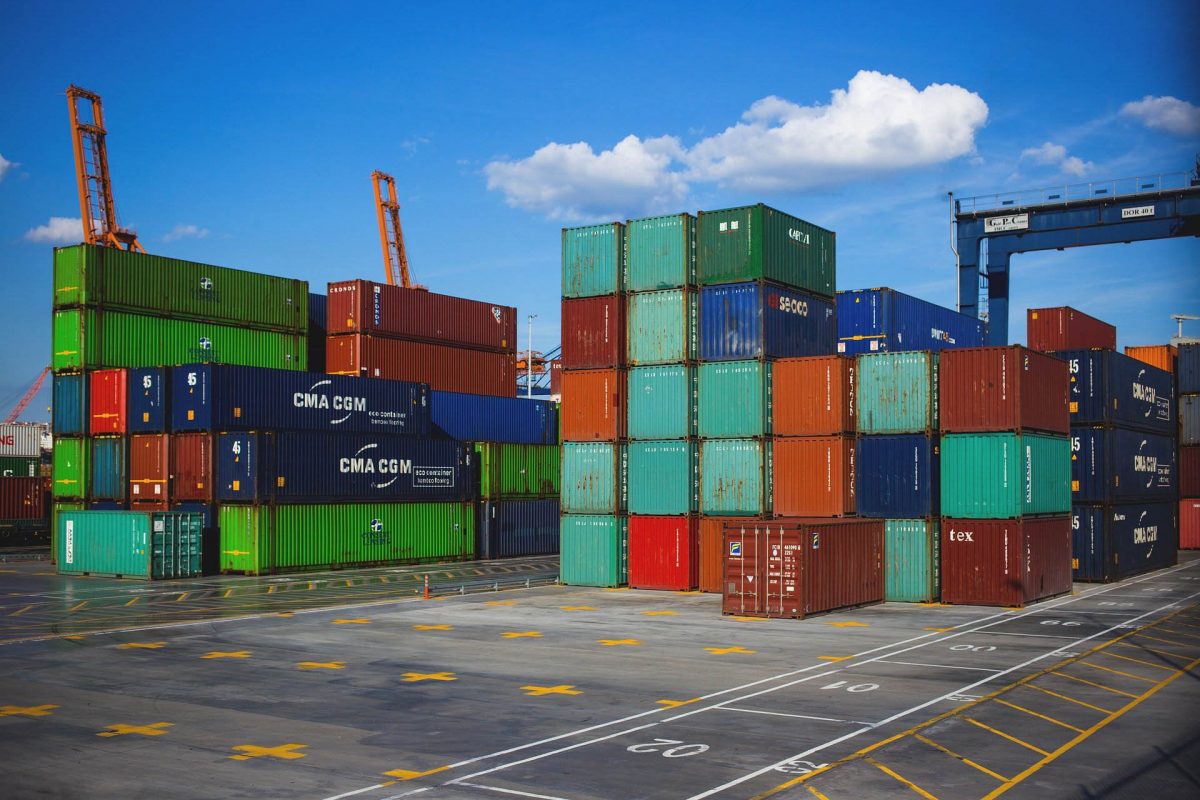President Irfaan Ali has ordered that freight charges be reduced to pre-pandemic levels in order to lower taxes on imports, thereby relieving consumers of the burden of rising prices on commodities that have been passed on due to higher shipping costs.
In a press release, the Office of the President (OP) announced that the Customs Act, and the Value Added Tax Act will be amended to reflect the concession, which is effective on all invoices dated August 1 and continues in effect until January 31, 2022.
“This measure will allow for a saving of $4.8 billion to the consumer and business community over the six month period, thereby reducing revenue collections by the similar amount of $4.8 billion,” it explained.
OP noted that in monitoring the socio-economic effects of the pandemic on household income, the government had recognised the marked increase in shipping costs from some countries, rising from an average of 2,500 to as much as 15,000 US dollars per 20 foot container, and from 3,500 to over 20,000 USD for a 40 foot container.
It further noted that duties, excise tax and input VAT are calculated using the cost, insurance and freight of imports, thereby allowing for the increased cost of freight to be passed on to the consumer by the importer.
Against this background as well as the impact of COVID-19 on the economy and the prices passed on to consumers due to increased shipping costs of imports, OP said Ali has instructed further reliefs be granted by reducing the freight charges to pre-pandemic levels (March 31, 2020), in the calculation of customs duties, excise taxes, and input VAT on imported goods.
It added that government agencies would be tasked to ensure that the savings are passed on to the consumer and not pocketed by unscrupulous importers.
The announcement was quickly applauded by private sector bodies.
The Private Sector Commission (PSC) said it was quite confident that the new measure is widely welcomed by businesses and consumers alike.
 In a statement, the PSC noted that it had crafted several proposals regarding the issue of shipping costs and was pleased to see that they were largely considered and implemented. “This decision will certainly stimulate economic activity and promote growth and enhancement within the Private Sector while facilitating consumer saving,” it said.
In a statement, the PSC noted that it had crafted several proposals regarding the issue of shipping costs and was pleased to see that they were largely considered and implemented. “This decision will certainly stimulate economic activity and promote growth and enhancement within the Private Sector while facilitating consumer saving,” it said.
At the same time, the PSC urged the business community to ensure that consumers benefit from all savings made as a result of the tax relief.
In addition, the PSC commended the government for its continuous efforts to bring significant economic assistance to citizens as well as advancing business development.
Meanwhile, the Georgetown Chamber of Commerce and Industry (GCCI) thanked the government for implementing the relief measure, while saying it can be expected to stop any potential erosion to welfare of the citizens of Guyana as a result of the global environment.
In a statement issued last evening, the GCCI said it had observed shipping prices increasing by six to ten times the pre-pandemic level. It explained that the situation created a sharp impact on the cost at which products are being provided on the domestic market.
“When goods arrived in Guyana at this increased cost, duties and other charges were then levied on the ‘Cost-Insurance-Freight’ (CIF) value. With the ‘Freight’ component of this value reaching record heights, the concomitant duties and charges caused increased cost of goods in the country. This regime, compounded by an ever increasing global price environment, created a case where global inflation was being “imported” into Guyana,” it added.
As a result, the GCCI noted that it had requested that the government consider applying duties and charges to the ‘Free-on-Board’ (FOB) value, which assesses the value of the cost of the goods only as opposed to the CIF value. It said Ali’s directive is expected to ease the burden on both the private sector and consumers.
Like the PSC, the GCCI strongly appealed to importers to “not behave in an unscrupulous and unpatriotic manner by profiteering off of a measure designed to ease the burden on the Guyanese people.” “The GCCI urges that these benefits be translated to the consumer who, through greater disposable income, will serve to continue the drive in rebooting the Guyanese economy out of the difficult economic fallout which occurred as a result of COVID-19 and the prevailing global conditions,” it said, while adding that it stands ready, as a partner in development, to continue to support the growth of Guyana.
The Guyana Manufacturing and Services Association (GMSA) also commending the measure, while saying that it is confident that the manufacturing sector will be regenerated to a more competitive position for regional and international trade.
Additionally, it said it must be noted that the removal of VAT on various commodities for primary production, and the reversal of VAT on all exports, demonstrated the government’s commitment to sustainable development and growth of businesses. “These benefits encouraged more upstream manufacturing, and assisted companies to remain operational, despite the challenges over the past year,” it added.
The GMSA said it intends to work with its members to ensure that all cost-saving measures are transferred to the sector and by extension, consumers.










